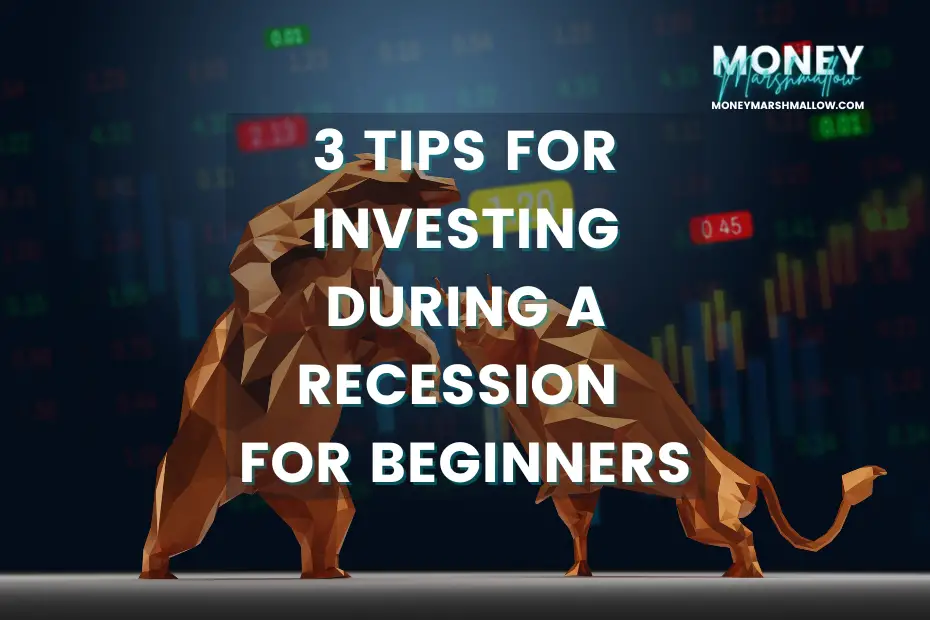Like it or not, recessions are a part of the economic cycle. While recessions lead to a contracting economy and market crashes, they can also create some of the best opportunities in the stock market. In this article, we will outline some top tips for investing during a recession for beginners.
Investing during economic downturn
With inflation hitting all-time highs in many countries, your money is depreciating value in your bank account. You might be already thinking about what you should do with your spare money instead.
During this year, the situation in the investment market has deviated from what we have become accustomed to in recent years. However, throughout history, the investment market has seen other extended periods of price declines too.
The drops, especially for shares, are an inevitable part of investing. These periods always happen when the economic cycle takes a downward turn. They will also recover when the economic outlook improves again.
The perfect stock investor, whether investing in direct stocks or ETFs/index funds, would know how to sell their holdings in the peak before the crash and repurchase them at the lowest price just before the prices turn skyward.
However, the perfect stock investor is a myth. Unfortunately, timing the market is practically impossible. This is because the twists and turns in the market are only clearly visible afterwards. Even professional investors don’t usually succeed in timing the market. Especially now, when the economy is facing a situation we’ve not seen in decades – inflation is the highest in more than 40 years, there is a war and an energy crisis in Europe, and central banks are tightening monetary policy at a record-breaking speed – it’s not recommended to experiment with timing the market. So let’s discuss what a beginner investor should do instead.
Related: 5 powerful reasons why investing your money is investing
How to invest during a recession
So how should we invest in this challenging market? Buying during dropping stock prices can be psychologically difficult. However, time diversification is often a smart move – whether investing during a recession or an economic upturn. Since we are unlikely to know exactly when the stock market will turn to a more permanent uptrend, it makes sense to make investments gradually.
This means some purchases will inevitably be timed at bottom levels and bring us the best possible return expectation; buying cheap will bring you healthy returns in the future! However, risk management is even more important when investing when the market is in turmoil. Here are three tips on how you can manage risk when investing during a recession:
1. Invest money you don't need for a while
To begin with, only invest the spare cash that you don’t need in the next couple of years. This is a useful tip for all beginner investors no matter when you start investing. But it’s particularly important during a recession. This means that you are not forced to sell your investments at potentially bad timing due to a change in your life. For example, if you are looking to buy a house in the next 1-2 years, it can be very risky to have your house deposit invested. Instead, something like a high-interest savings account is usually better for short-term savings.
2. Ensure you have an emergency fund
Following on the previous point, make sure you have a sufficient emergency fund for unexpected costs in your bank account instead of an investment account. Although inflation eats the value of the emergency fund, it’s often even worse if you have to sell investments for a loss to cover sudden costs, such as a broken washing machine or car.
As companies cope with diminished demand, declining profits and elevated debt, many also start to lay off staff in order to cut costs. Therefore, an emergency fund is also extremely important due to a potential, sudden job loss.
In a nutshell, you should have at least 3 to 6 months’ worth of expenses in your emergency fund before you start investing.
3. Diversify your investments
Diversification is key for any investment strategy. Choosing funds that track stock markets such as the FTSE or S&P 500 is a popular way to invest at any time but especially so during a recession. With index funds, you aren’t betting on individual companies but on the long-term success of global businesses.
Other ways to diversify your investments are to hold a mix of shares and bonds or spread across global markets. Focussing on multiple markets allows you to avoid overexposure to downturns in any one area.
